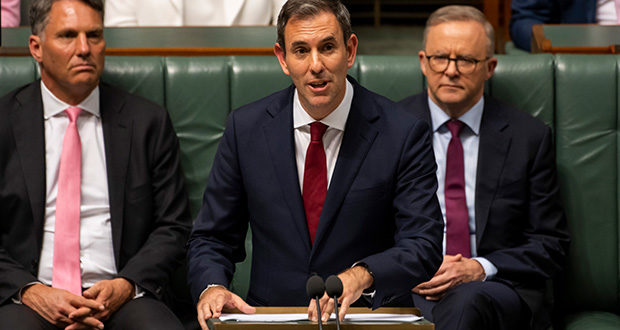Aged care advocates and experts have said the federal government's first budget fulfilled key election promises but does not financially support true reform.
Treasurer Jim Chalmers handed down Labor's budget this week, with $3.9 billion earmarked for the aged care sector.
The big ticket item was $2.5 billion towards 24/7 nurses and raising the number of care minutes to 215 minutes by 2024.
Former ACCPA chief and longtime sector advocate Paul Sadler said would still not be enough to fix the sectors' financial problems.
"The big issue for the system is how we are going to afford the cost of the ageing population and the increasing costs of aged care," he told Aged Care Insite.
"The government will need to start making difficult decisions on how to raise more revenue for the sector."No funding was allocated towards the ongoing workforce bid in the Fair Work Commission to increase sector wages by 25 per cent.
Sadler said it's quite likely the government will hold off on funding a pay rise until the next budget, which will mean a pay rise won't kick in until at least July next year.
"It's absolutely critical to get that pay increase coming through as soon as possible," Sadler said.
"It would help enormously to solve the recruitment and retention difficulties the sector is currently facing."
Sydney University health and ageing professor Lee-Fay Low said the budget is 'quite substantial' but agreed it's not enough to drive reform.
"Over the four years that the funding will be released, it'll provide less than a quarter of a million dollars a year per facility," Low said.
"So that's not that much.
"If you divide it by 200,000 aged care residents, then it's much less than $10 a day a resident; it's not even an improvement compared to the $10 food supplement from 2021."
Low also welcomed Labor's commitment of $300 million towards enhancing technology in aged care homes.
The funding will be directed to providers to update their IT infrastructure, including intensive care and online administrative programs.
"The technology in aged care is just woeful. It's substantially behind primary care and hospital care," Low said.
"But again, more than $300 million is needed to improve IT in facilities significantly.
"The funding is also just for support and care aspects – it doesn't address access to technology for residents."
The budget gave $50 million towards inaugurating an aged care complaints commissioner and an independent inspector-general to monitor complaints filed against services.
A recent audit from Older Persons Advocacy Group (OPAN) revealed the number of calls reporting neglect and abuse against aged care homes increased by nearly 20 per cent this year.
The Aged Care Quality and Safety Commission received 10,326 complaints across all aged care services between 2021-22.
Low said the current complaints process was incredibly frustrating and "did not lead to successful results."
"People feel as if the whole system is against them; that they're small, shouldn't complain and that they're fighting a big organisation."
One of her major concerns around the Quality and Standards Commission is that the results of a complaint heavily depends on the quality and training of their assessors.
"Some assessors seem to be there to try and find fault or find something that you're doing wrong in the paperwork, rather than really looking at the quality of care.
"It’s important that they have appropriate qualifications, appropriate ongoing supervision, and that the standards are translated into an operable way that's standard, rather than really subjective interpretation.
"So this is a big move towards transparency and improving quality in aged care."
Do you have an idea for a story?Email [email protected]
 Aged Care Insite Australia's number one aged care news source
Aged Care Insite Australia's number one aged care news source


these reforms will do very little to make any real positive change in an already stressed sector which is battling ongoing severe staff shortages, current staff are exhausted, they receive little recognition and acknowledgement of the complex and difficult tasks they perform on a daily basis, they are paid an appallingly low wage for the work they do, nothing will change unless major structural and legal processes are implemented, all care workers need to have mandatory training of a Certificate 3 qualification BEFORE they are employed, they need a increase in wages and a an immense shift in attitudes and values towards aged people and their care need to change. You cannot expect Aged Care Standards to be upheld and Rights to be respected when you have carers that are only partially or not trained.
The Promises of increase in wages was keeping staff from leaving and going to disability but nothing was given and the new care minutes is a great idiea but where do we get this staff to achieve these goals ? it is almost impossible to maintain the standards with little or no staff.